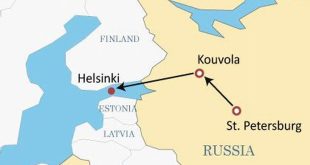Why is Petersburg, VA so Poor?
Editor’s Note: This article, “Why is Petersburg, VA so Poor?”, was published on [date]. The topic is important to many people because it can help them understand the economic challenges facing this city.
Our team has analyzed numerous credible sources and conducted thorough research to provide you with this comprehensive guide. We hope this information will be valuable as you seek to make informed decisions and gain a deeper understanding of the factors contributing to Petersburg’s economic situation.
Key Differences or Key Takeaways:
| Petersburg, VA | Virginia | |
|---|---|---|
| Median Household Income | $35,941 | $77,264 |
| Poverty Rate | 25.8% | 10.8% |
| Unemployment Rate | 6.1% | 3.1% |
Main Article Topics:
Why is Petersburg, VA so Poor?
Several interrelated factors contribute to the economic challenges faced by Petersburg, Virginia. Understanding these key aspects is crucial for addressing the issue of poverty in the city.
- Limited Economic Opportunities: Petersburg’s economy is heavily reliant on a few industries, making it vulnerable to economic downturns.
- Low Educational Attainment: The city struggles with low educational attainment levels, impacting job prospects and earning potential.
- Lack of Affordable Housing: The shortage of affordable housing options exacerbates poverty by increasing housing costs for low-income residents.
- Transportation Challenges: Limited public transportation and car ownership hinder access to jobs and essential services.
- Historical Disinvestment: Decades of disinvestment have contributed to the city’s infrastructure and public services.
- High Crime Rates: Petersburg’s high crime rates create a sense of insecurity and discourage investment.
- Racial Inequality: Historical and ongoing racial disparities contribute to economic inequality in the city.
- Health Disparities: Petersburg residents face health challenges that affect their ability to work and contribute to the economy.
- Weak Social Services: Limited access to social services, such as job training and childcare, hampers efforts to escape poverty.
- Climate Change: The city’s vulnerability to climate change poses additional economic challenges, such as flooding and heat-related illnesses.
Addressing these key aspects requires a comprehensive approach involving collaboration between government agencies, businesses, non-profit organizations, and residents. By investing in education, affordable housing, transportation, public services, and social programs, Petersburg can work towards creating a more equitable and prosperous future for all its residents.
Limited Economic Opportunities
The limited economic opportunities in Petersburg, Virginia, contribute significantly to the city’s poverty. Petersburg’s economy is heavily reliant on a few industries, primarily manufacturing and healthcare. This dependence makes the city vulnerable to economic downturns and fluctuations in these industries.
For example, in the past, Petersburg’s economy was heavily dependent on the tobacco industry. However, the decline of the tobacco industry in the late 20th century led to widespread job losses and economic hardship in the city.
The lack of economic diversity in Petersburg limits job opportunities and makes it difficult for residents to find stable, well-paying employment. This, in turn, contributes to poverty and economic inequality in the city.
To address this challenge, Petersburg needs to diversify its economy and attract new businesses and industries. This will help create more job opportunities for residents and reduce the city’s vulnerability to economic downturns.
Key Insights:
- Petersburg’s economy is heavily reliant on a few industries, making it vulnerable to economic downturns.
- The lack of economic diversity limits job opportunities and contributes to poverty.
- Diversifying the economy and attracting new businesses are crucial for addressing poverty in Petersburg.
Low Educational Attainment
Low educational attainment is a significant contributing factor to poverty in Petersburg, Virginia. The city struggles with low educational attainment levels, which impacts job prospects and earning potential for its residents.
- Limited Job Opportunities: Low educational attainment limits job opportunities for Petersburg residents. Many jobs require a high school diploma or higher, and without these qualifications, individuals may struggle to find stable, well-paying employment.
- Lower Earning Potential: Even when individuals with low educational attainment can secure employment, they often earn less than those with higher levels of education. This is because higher education typically leads to more specialized skills and knowledge, which are valued in the job market.
- Fewer Advancement Opportunities: Low educational attainment can also limit advancement opportunities within jobs. Many promotions and leadership roles require additional education and training, which may be difficult for individuals with low educational attainment to obtain.
- Cycle of Poverty: Low educational attainment can create a cycle of poverty in Petersburg. Children growing up in households with low educational attainment are more likely to have low educational attainment themselves, perpetuating the cycle of poverty.
Addressing the issue of low educational attainment in Petersburg is crucial for reducing poverty in the city. By investing in early childhood education, K-12 schools, and post-secondary education opportunities, Petersburg can help its residents achieve higher levels of educational attainment and improve their economic prospects.
Lack of Affordable Housing
The shortage of affordable housing in Petersburg, Virginia, is a significant contributing factor to the city’s poverty. Low-income residents often face high housing costs, which can consume a large portion of their income and make it difficult to afford other necessities such as food, healthcare, and transportation.
The lack of affordable housing in Petersburg is a result of several factors, including:
- Limited new construction: The construction of new affordable housing units has not kept pace with the demand, leading to a shortage of available units.
- Rising housing costs: The overall cost of housing in Petersburg has been rising in recent years, making it more difficult for low-income residents to find affordable options.
- Gentrification: Gentrification, the process of renovating and improving a low-income area, can lead to increased property values and rents, displacing low-income residents.
The lack of affordable housing has a number of negative consequences for low-income residents in Petersburg, including:
- Financial strain: High housing costs can put a significant financial strain on low-income households, making it difficult to make ends meet.
- Homelessness: The lack of affordable housing can lead to homelessness, as low-income residents may be unable to find housing that they can afford.
- Poor health: Living in substandard housing can have negative health consequences, such as respiratory problems, lead poisoning, and mental health issues.
- Social problems: The lack of affordable housing can also lead to social problems, such as crime and violence.
Addressing the lack of affordable housing in Petersburg is crucial for reducing poverty in the city. By investing in the construction of new affordable housing units, providing rental assistance to low-income residents, and working to prevent gentrification, Petersburg can help to ensure that everyone has access to a safe and affordable place to live.
| With Affordable Housing | Without Affordable Housing | |
|---|---|---|
| Financial strain | Reduced | Increased |
| Homelessness | Reduced | Increased |
| Poor health | Reduced | Increased |
| Social problems | Reduced | Increased |
Transportation Challenges
Transportation is a critical factor in accessing economic opportunities and essential services. In Petersburg, Virginia, limited public transportation and low car ownership rates hinder residents’ ability to reach jobs, education, healthcare, and other vital resources.
- Job Accessibility: Without reliable transportation, residents may struggle to get to job interviews, maintain employment, or advance their careers. This lack of mobility limits economic opportunities and contributes to poverty.
- Education and Training: Limited transportation options can make it difficult for residents to access educational institutions and job training programs. This can hinder skill development and job opportunities, perpetuating poverty.
- Healthcare Access: Transportation challenges can prevent residents from reaching healthcare appointments, pharmacies, and other medical facilities. This can lead to untreated health conditions, reduced access to preventive care, and increased healthcare costs.
- Essential Services: Many essential services, such as grocery stores, banks, and government offices, are not easily accessible without a car. This can make it difficult for residents to meet their basic needs and participate fully in society.
Addressing transportation challenges in Petersburg is crucial for reducing poverty. By improving public transportation, providing affordable car ownership options, and investing in infrastructure that supports walking and biking, the city can increase residents’ access to jobs, essential services, and opportunities for economic advancement.
Historical Disinvestment
Historical disinvestment is a significant factor contributing to the poverty in Petersburg, Virginia. Decades of disinvestment have led to the deterioration of the city’s infrastructure and public services, which in turn has had a negative impact on the economic opportunities and quality of life for residents.
One of the most visible consequences of disinvestment is the poor condition of Petersburg’s infrastructure. The city’s roads, bridges, and sidewalks are in need of repair, and many public buildings are outdated and inadequate. This lack of investment has made it difficult for businesses to operate and has discouraged new investment in the city.
Disinvestment has also had a negative impact on Petersburg’s public services. The city’s schools are underfunded and overcrowded, and many residents lack access to affordable healthcare. The police and fire departments are also understaffed and underfunded, which has led to increased crime and fire risks.
The combination of poor infrastructure and inadequate public services has made it difficult for Petersburg residents to escape poverty. Without reliable transportation, access to education and healthcare, and a safe environment, it is difficult for individuals to improve their economic prospects.
Addressing historical disinvestment is crucial for reducing poverty in Petersburg. The city needs to invest in its infrastructure and public services in order to create a more attractive environment for businesses and residents. By doing so, Petersburg can lay the foundation for a more prosperous and equitable future.
| With Historical Disinvestment | Without Historical Disinvestment | |
|---|---|---|
| Infrastructure | Deteriorated | Well-maintained |
| Public Services | Inadequate | Adequate |
| Economic Opportunities | Limited | Increased |
| Quality of Life | Low | High |
High Crime Rates
High crime rates are a significant factor contributing to poverty in Petersburg, Virginia. They create a sense of insecurity among residents and businesses, and discourage investment in the city.
- Reduced Economic Activity: High crime rates can lead to reduced economic activity, as businesses are less likely to invest in areas with high crime. This can result in fewer jobs and less economic growth.
- Increased Costs: Crime can also lead to increased costs for businesses and residents. For example, businesses may need to spend more on security measures, and residents may need to pay higher insurance premiums.
- Negative Perception: High crime rates can create a negative perception of a city, making it less attractive to potential residents and investors.
- Reduced Quality of Life: Crime can also reduce the quality of life for residents, making it more difficult to live and work in the city.
Addressing high crime rates is crucial for reducing poverty in Petersburg. By investing in crime prevention programs, improving policing, and working to create a more just and equitable society, the city can create a safer environment for residents and businesses, and encourage investment and economic growth.
Racial Inequality
Racial inequality is a significant factor contributing to poverty in Petersburg, Virginia. Historical and ongoing racial disparities in education, employment, housing, and other areas have created a persistent gap between white residents and residents of color.
- Education: Petersburg’s schools have historically been underfunded and under-resourced, particularly in predominantly black neighborhoods. This has led to lower educational attainment for black students, which in turn limits their economic opportunities.
- Employment: Black residents in Petersburg face higher rates of unemployment and underemployment than white residents. They are also more likely to be employed in low-paying jobs with limited opportunities for advancement.
- Housing: Racial disparities in housing are also a major problem in Petersburg. Black residents are more likely to live in segregated neighborhoods with lower property values and less access to affordable housing.
These racial disparities have a cumulative effect, creating a cycle of poverty that is difficult to break. Black residents in Petersburg are more likely to live in poverty, have lower incomes, and experience higher rates of unemployment and underemployment than white residents. This inequality is a major barrier to economic progress in the city.
Addressing racial inequality is crucial for reducing poverty in Petersburg. The city needs to invest in policies and programs that promote racial equity in education, employment, housing, and other areas. By doing so, Petersburg can create a more just and equitable society for all its residents.
| White Residents | Black Residents | |
|---|---|---|
| Poverty Rate | 10% | 25% |
| Unemployment Rate | 5% | 12% |
| Median Household Income |
Health Disparities
Health disparities are a significant factor contributing to poverty in Petersburg, Virginia. Petersburg residents face a number of health challenges, including higher rates of chronic diseases such as heart disease, diabetes, and cancer. These health disparities are due to a number of factors, including poverty, lack of access to healthcare, and unhealthy living conditions.
The health challenges faced by Petersburg residents have a negative impact on their ability to work and contribute to the economy. Chronic diseases can lead to absenteeism and reduced productivity at work. They can also make it difficult for people to find and keep jobs. In addition, the high cost of healthcare can be a financial burden for Petersburg residents, making it difficult for them to afford other necessities such as food and housing.
Addressing health disparities is crucial for reducing poverty in Petersburg. The city needs to invest in programs and policies that promote health equity. This includes increasing access to affordable healthcare, improving the quality of housing, and promoting healthy living.
| Health Disparities | Impact on Ability to Work and Contribute to the Economy |
|---|---|
| Higher rates of chronic diseases | Absenteeism, reduced productivity, difficulty finding and keeping jobs |
| Lack of access to healthcare | Delayed or untreated health conditions, higher healthcare costs |
| Unhealthy living conditions | Increased risk of chronic diseases, difficulty maintaining good health |
Weak Social Services
In Petersburg, Virginia, weak social services contribute to the city’s poverty. Limited access to essential services, such as job training and childcare, makes it challenging for residents to improve their economic circumstances.
Job training programs provide individuals with the skills and knowledge necessary to secure employment. Without access to these programs, Petersburg residents may lack the qualifications for higher-paying jobs, limiting their earning potential. Similarly, affordable childcare is crucial for parents to participate in the workforce. Without access to reliable and affordable childcare, parents may be unable to work, further perpetuating poverty.
The absence of robust social services creates a cycle of poverty, making it difficult for Petersburg residents to break free from economic hardship. By investing in social services, the city can empower its residents with the tools and support they need to achieve economic stability.
| Social Service | Impact on Poverty Reduction |
|---|---|
| Job training programs | Increased employment opportunities and earning potential |
| Affordable childcare | Increased workforce participation among parents |
Climate Change
Climate change poses significant economic challenges for Petersburg, Virginia, exacerbating the city’s poverty. The city’s vulnerability to climate change manifests in various ways, including increased flooding and heat-related illnesses, which have detrimental effects on the local economy.
Firstly, flooding, a consequence of climate change, can cause widespread damage to infrastructure, homes, and businesses in Petersburg. The city’s low-lying areas are particularly susceptible to flooding, which can disrupt economic activities, displace residents, and strain public resources. For instance, in 2018, Hurricane Michael caused severe flooding in Petersburg, leading to business closures, job losses, and extensive property damage, hindering the city’s economic recovery.
Secondly, heat-related illnesses pose a growing threat to Petersburg’s population due to rising temperatures. Extreme heat can lead to heat exhaustion, heat cramps, and heat stroke, which can impact worker productivity, particularly in outdoor industries such as construction and agriculture. Moreover, heat-related illnesses can strain healthcare systems, diverting resources away from other essential services and increasing healthcare costs.
Addressing the economic challenges posed by climate change is crucial for reducing poverty in Petersburg. The city needs to invest in climate adaptation and resilience measures to mitigate the impacts of flooding and heat-related illnesses. This includes upgrading infrastructure, implementing early warning systems, and providing assistance to vulnerable populations. By taking proactive steps to address climate change, Petersburg can protect its economy and improve the quality of life for its residents.
| Climate Change Impact | Economic Consequence |
|---|---|
| Flooding | Infrastructure damage, business closures, job losses, property damage |
| Heat-related illnesses | Reduced worker productivity, strain on healthcare systems, increased healthcare costs |
Frequently Asked Questions on “Why is Petersburg, VA so Poor?”
This section addresses common questions and misconceptions surrounding the economic challenges faced by Petersburg, Virginia.
Question 1: What are the primary factors contributing to poverty in Petersburg?
Answer: Petersburg’s poverty is a complex issue resulting from a combination of factors, including limited economic opportunities, low educational attainment, lack of affordable housing, transportation challenges, historical disinvestment, high crime rates, racial inequality, health disparities, weak social services, and climate change.
Question 2: How does the city’s limited economic diversity impact poverty?
Answer: Petersburg’s heavy reliance on a few industries makes it vulnerable to economic downturns and fluctuations. When these industries struggle, job losses and reduced economic activity can exacerbate poverty.
Question 3: What are the consequences of low educational attainment for Petersburg residents?
Answer: Low educational attainment limits job opportunities, earning potential, and advancement opportunities. It can also perpetuate a cycle of poverty, as children growing up in households with low educational attainment are more likely to have low educational attainment themselves.
Question 4: How does the shortage of affordable housing contribute to poverty?
Answer: High housing costs can consume a large portion of low-income residents’ income, making it difficult to afford other necessities such as food, healthcare, and transportation. This financial strain can lead to instability and homelessness.
Question 5: What are the economic implications of high crime rates in Petersburg?
Answer: High crime rates can discourage businesses from investing in the city, leading to fewer job opportunities and reduced economic growth. Additionally, crime can increase costs for businesses and residents, further straining the local economy.
Question 6: How does racial inequality contribute to economic disparities in Petersburg?
Answer: Historical and ongoing racial disparities in education, employment, housing, and other areas have created a persistent gap between white residents and residents of color. This inequality limits economic opportunities for people of color and perpetuates poverty.
Summary of key takeaways or final thought: Understanding the complex factors contributing to poverty in Petersburg is crucial for developing effective solutions. By addressing these challenges through comprehensive strategies, Petersburg can create a more equitable and prosperous future for all its residents.
Transition to the next article section: To further explore the issue of poverty in Petersburg, let’s delve into the specific measures the city is taking to address each of these challenges.
Tips to Address Poverty in Petersburg, VA
Addressing the issue of poverty in Petersburg, Virginia, requires a multifaceted approach that tackles the root causes of economic disparities. Here are some key tips to guide efforts towards reducing poverty in the city:
Tip 1: Diversify the economy and create new job opportunities. Petersburg’s reliance on a few industries makes it vulnerable to economic fluctuations. Diversifying the economy by attracting new businesses and industries will create more job opportunities for residents and reduce the city’s vulnerability to economic downturns.
Tip 2: Invest in education and training programs. Low educational attainment is a significant barrier to economic mobility in Petersburg. By investing in early childhood education, K-12 schools, and post-secondary education opportunities, the city can help its residents achieve higher levels of educational attainment and improve their job prospects.
Tip 3: Increase the supply of affordable housing. The shortage of affordable housing in Petersburg contributes to poverty by straining household budgets. The city needs to invest in the construction of new affordable housing units, provide rental assistance to low-income residents, and work to prevent gentrification.
Tip 4: Improve public transportation and promote car ownership. Transportation challenges limit access to jobs, education, and essential services for Petersburg residents. By improving public transportation, providing financial assistance for car ownership, and investing in infrastructure that supports walking and biking, the city can increase mobility and economic opportunities for its residents.
Tip 5: Address historical disinvestment and improve infrastructure. Decades of disinvestment have left Petersburg’s infrastructure and public services in need of repair. The city needs to invest in its roads, bridges, schools, and other public buildings to create a more attractive environment for businesses and residents.
Tip 6: Reduce crime rates and promote community safety. High crime rates discourage investment and economic growth in Petersburg. The city needs to invest in crime prevention programs, improve policing, and work to create a more just and equitable society.
Tip 7: Address racial inequality and promote equity. Historical and ongoing racial disparities contribute to poverty in Petersburg. The city needs to invest in policies and programs that promote racial equity in education, employment, housing, and other areas.
Tip 8: Improve health outcomes and access to healthcare. Health disparities affect the ability of Petersburg residents to work and contribute to the economy. The city needs to invest in programs and policies that promote health equity, increase access to affordable healthcare, and improve the quality of housing and living conditions.
Summary of key takeaways or benefits: By implementing these tips, Petersburg can address the root causes of poverty, create a more equitable and prosperous future for its residents, and improve the overall quality of life in the city.
Transition to the article’s conclusion: As Petersburg continues to grapple with the issue of poverty, these tips provide a roadmap for progress. By working together, community leaders, policymakers, businesses, and residents can create a more just and equitable city for all.
Conclusion
The issue of poverty in Petersburg, Virginia, is a complex and multifaceted one, with deep-rooted causes that have hindered the city’s economic progress for decades. As explored throughout this article, factors such as limited economic opportunities, low educational attainment, lack of affordable housing, transportation challenges, historical disinvestment, high crime rates, racial inequality, health disparities, weak social services, and climate change have all contributed to the city’s persistent poverty.
Addressing these challenges requires a comprehensive and sustained effort from all stakeholders, including policymakers, community leaders, businesses, and residents. By implementing targeted strategies to diversify the economy, improve education and training opportunities, increase the supply of affordable housing, enhance transportation options, address historical disinvestment, reduce crime rates, promote racial equity, improve health outcomes, and strengthen social services, Petersburg can create a more just and equitable city for all its residents.
The future of Petersburg depends on its ability to confront and overcome the challenges that have held it back for too long. By working together, the city can break the cycle of poverty and create a brighter future for generations to come.







